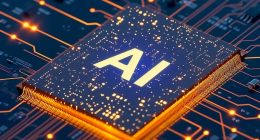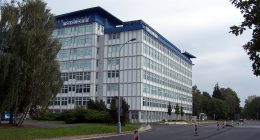Japanese tech behemoth SoftBank has recently introduced a smart parking app at the Makuhari Messe conference venue in Tokyo. The app was made using the country’s first NB-IoT field trial. Along with introducing the app, Ken Miyauchi, president and CEO of the company, shed some light on Softbank’s future plans.
NB-IoT is a Low Power Wide Area Network (LPWAN) radio technology standard that has been developed to enable devices to be connected using cellular telecommunications bands. It is 3GPP-backed and is competing against non-cellular offerings (operating in unlicensed spectrum) such as Sigfox and LoRa. And in case you were wondering, its not a parking app for cars. Think of the NB-IoT as a tech that can provide Internet to the masses.
According to Ken Miyauchi, president and CEO, SoftBank,
It is using NB-IoT technology to run its smart parking app, which supports a large number of concurrent connections. The app is being demonstrated at the MBB Forum expo.
The company also announced that it was the first in the world to commercially install massive MIMO technology, which is an antenna technology for wireless communications in which multiple antennas are used at both the source (transmitter) and the destination (receiver). The antennas at each end of the communications circuit are combined to minimize errors and optimize data speed.
The company has deployed this technology at 100 base stations, in the most congested areas, such as train stations.
Miyauchi claimed that that in the past MIMO (multiple-input and multiple-output) offered 5GB data plans for $50 a month, but it has allowed SoftBank to offer customers 20GB for $60 a month.
According to a survey of students and office workers most users don’t consume data freely because they worry about exceeding their limit. Miyauchi said,
In the next five years 20GB won’t be enough. As operators, how do we continuously increase our capacity? This is an important mission for us as the high capacity era is coming.
Since data traffic has increased 2,300 times from 2006 to 2016, SoftBank expects another 10-times increase in the next few years. The company is also expecting autonomous driving to come up in four to five years, with which they can support remote diagnostics and artificial intelligence.




